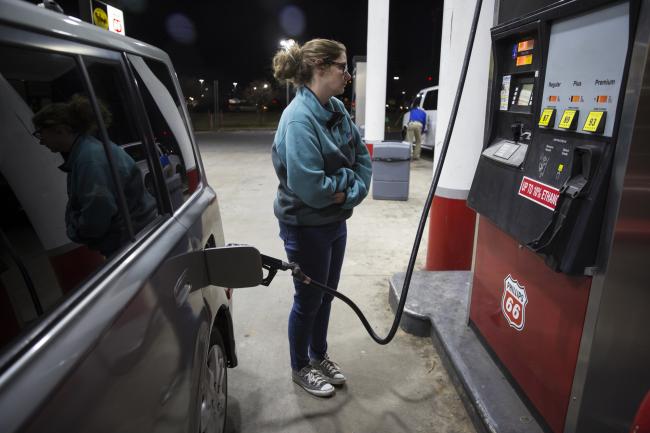(Bloomberg) -- The Boston Consulting Group added its voice to the chorus of forecasts predicting a slump in U.S. gasoline consumption as electric vehicles become popular and internal combustion engines turn more efficient.
Demand for the fuel in the world’s biggest oil consumer may drop by a third by 2035, the firm said in a report titled “Are Oil Companies Ready for the Next Energy Transition in the U.S.?” that was published on Monday.
“Over the next two decades, changes to the U.S. energy landscape could cause a steep decline in domestic gasoline consumption,” wrote the report’s authors, including Marie-Helene Ben Samoun and Clint Follette.
A growing body of research is painting a bearish picture for oil beyond the next 20 years as more environmentally friendly vehicles hit roads across the globe. Rapid adoption of EVs could mean oil demand peaks by the 2030s, according to Bank of America (NYSE:BAC) and BP (LON:BP) Plc, a prospect that’s likely to worry institutional investors in the energy industry.
But not everyone is pessimistic, and consumption growth has remained strong in recent years, aided by a global economic recovery. The threat to oil demand from electric vehicles and the anti-fossil fuel movement are overblown, according to Maynard Holt, the chief executive officer of Houston-based investment bank Tudor Pickering Holt & Co.
Investors are overestimating how quickly demand will shift to EVs, according to Pierre Lassonde, the chairman of Franco-Nevada Corp., the world’s most valuable streaming and royalty company. In India, a major oil consumer, gasoline and diesel consumption is seen doubling over the period through 2030, even though the nation aspires to sell only electric vehicles by the end of the next decade.
New Cars
The Boston Consulting Group said in its report that electric vehicles could account for about 20 percent of new U.S. car registrations by 2030, leading to a 30-35 percent drop in American gasoline consumption by 2035, compared with 2015 levels. It predicted last year that battery-powered cars will make up about half of the global automotive market by 2030, as environmental regulations, falling prices and the deployment of driverless taxis fuel demand.
“Judging from the experience of other industries, the transitions -- when they come -- will happen faster than established players expect,” it said. “Electric vehicle ownership could raise dramatically over the next decade, eroding demand for conventional vehicles.”
The consultant said that demand for jet fuel, marine fuel and feedstock for the petrochemical industry will grow strongly until 2035, in part offsetting the decline in gasoline consumption. Yet, their growth won’t be enough to compensate refiners for the loss of revenue.
